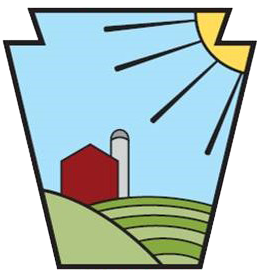
PA Farmland
Preservation Association
Promoting Ag Land Preservation in Pennsylvania
Farmland Preservation: A Vital Investment for Pennsylvania's Future
The preservation of agricultural land in Pennsylvania offers a multifaceted approach to securing a prosperous and healthy future for the commonwealth's residents and farm owners alike.
For the Residents of Pennsylvania: A Legacy of Food, Heritage, and Stability
Preserving farmland is a critical strategy for ensuring a stable and secure future for all Pennsylvanians. The benefits extend beyond the farm gate, touching on the economy, environment, and the very character of the state.
Securing a Local Food Source: By safeguarding its diverse agricultural base, which includes everything from dairy and poultry to produce and Christmas trees, Pennsylvania ensures a resilient local food system. This proximity of food production is not only vital for food security but also means that the food consumed is fresher and travels a shorter distance from farm to table.
Maintaining Local Heritage and Quality of Life: The picturesque rural landscapes of Pennsylvania are a significant part of its identity, attracting tourists and enhancing the quality of life for residents. Farmland preservation plays a crucial role in protecting these scenic views and the overall rural character of the county.
Stabilizing Property Taxes: Contrary to common belief, residential development often puts a strain on municipal budgets. Farms, on the other hand, typically contribute more in taxes than they consume in public services like schools and road maintenance. Studies have shown that for every dollar a farm family pays in property taxes, they only use a fraction of that in public services, making farmland a net fiscal benefit to the community.
Boosting the Local Economy: Agriculture is a major economic driver in Pennsylvania. The preservation of farmland supports a wide array of agribusinesses, including equipment dealers, feed mills, and financial services. For every dollar spent on preserving farmland, there is a multiplier effect, generating additional economic activity within the local community. Furthermore, farms create thousands of direct and indirect jobs.
Ensuring a Healthy Environment: Agricultural lands are essential for a healthy ecosystem. They provide vital open spaces for wildlife, help recharge groundwater supplies, and play a role in carbon sequestration. Preserved farmland also helps in managing stormwater runoff and can mitigate the effects of flooding.
For the Farm Owners: A Foundation for Sustainability and Growth
For farmers, the decision to preserve their land can provide both immediate financial relief and long-term stability, ensuring a future for their operations and a lasting legacy.
Generating Income and Reinvestment: The sale of a conservation easement can provide farmers with a significant influx of capital. This income can be used to reduce debt, purchase new equipment, expand their land holdings, or make other crucial investments in their farm's infrastructure.
Facilitating Generational Transfer: Farmland preservation can be a key tool in succession planning. The funds received from an easement can help make the transfer of the farm to the next generation more financially feasible.
Reducing Conflicts and Ensuring Security: By creating designated agricultural zones, farmland preservation helps to minimize conflicts with non-farm neighbors over land use and common farming practices. This provides farmers with a greater sense of security, encouraging them to make long-term investments in their operations.
Building a Lasting Legacy: For many farm families, their land is more than just a business; it is their heritage. Farmland preservation allows them to ensure that their farm will remain in agriculture for generations to come, creating a meaningful and enduring legacy. Pennsylvania has permanently preserved more farms and acres than any other state, a testament to the strong commitment of its agricultural community and government.
